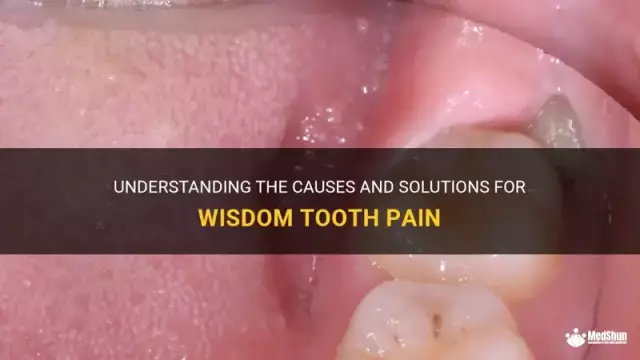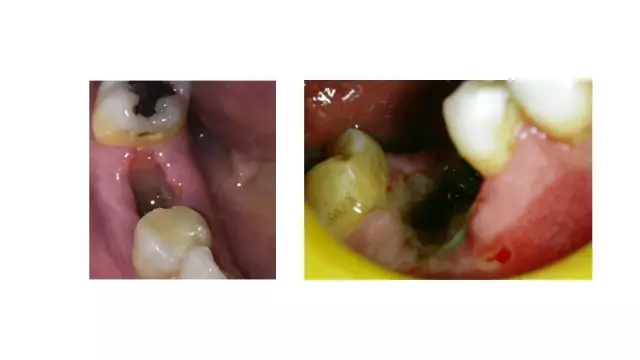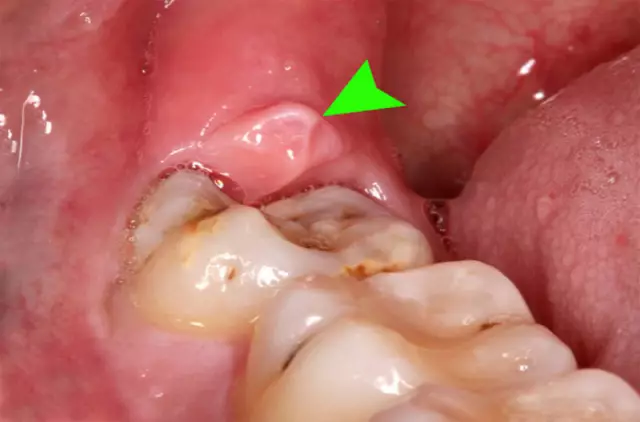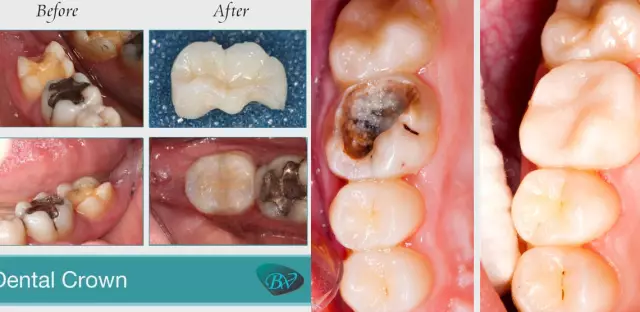- Author Rachel Wainwright wainwright@abchealthonline.com.
- Public 2023-12-15 07:39.
- Last modified 2025-11-02 20:14.
Tooth hurts after nerve removal

Each of us has been taking care of our teeth since childhood, brushing them daily with the best toothpastes. However, this does not save you from going to the dentist. Quite often, you can hear that the doctor is going to remove a nerve from a tooth. Such an operation is not always performed, but only in certain cases, when it is impossible to leave the tooth nerve intact at all.
How is a nerve removed?
What is the procedure for removing a nerve? First you need to understand the structure of the tooth. Any bone formation in our oral cavity to a large extent consists of hard tissues, on the visible surface of which caries occurs. Due to the prolonged process of its formation, as well as the lack of proper treatment, caries eventually affects the inner region of the tooth - the soft tissues (pulp), where the nerves are located. By removing a tooth nerve, the dentist does not get rid of the fibrous formation, but of the pulp. The first symptom of pulpitis is severe pain, which occurs due to swelling of soft tissues and compression of nerves. In cases where pulp treatment is not possible, the doctor proceeds directly to the depulpation procedure.
As a result of the fact that dentistry began to actively improve only in recent years, earlier the process of dental tissue treatment was very painful for patients. In addition, the removal of the nerve required more than one visit to the clinic, which also caused certain inconveniences for the patient. Before removing the nerve, it was exposed and treated with arsenic, which was supposed to kill the nerve. To ensure the effectiveness of this procedure, a temporary filling helped, which was allowed to be applied to the tooth for no more than a couple of days (otherwise it threatened to cause periodontitis). After the allotted time, the doctor got rid of the filling, removed the dead nerve, treated the tooth with a special antiseptic and closed the cavity with a permanent filling.
Today, the procedure for removing the nerve, as well as filling the canal, is carried out using local anesthesia, and the entire procedure takes several minutes, without giving the patient even the slightest painful sensations.
In the event of acute pain, of course, it is better to seek help from a professional dentist, who will perform the depulpation as quickly and accurately as possible.
What to do if a tooth hurts after removing a nerve?
The process of removing the pulp always begins with anesthesia, opening the soft tissues of the tooth, removing the nerve and filling the canals. Treatment is considered complete when a permanent filling is applied to the entire bone formation. In such cases, it would seem, unpleasant sensations should no longer be. However, it often happens that a tooth hurts after a nerve is removed. At the same time, you do not need to sin on the material for the filling or the medical experience of the dentist. The appearance of uncomfortable symptoms is quite simple to explain - an outsider intervened in the integrity of the tooth, which led to the indignation of the patient's body. Sometimes painful sensations are also complemented by puffiness and migraine, which can still be dealt with by adhering to some of the recommendations of a specialist.
1. The most effective method, which will make you forget that your tooth hurts after the removal of a nerve, is the use of pain relievers, which do not always have a general positive effect on the body. It is recommended to use them immediately after depulpation or within 24 hours after it.
2. Mouthwash solution also helps to reduce discomfort. It is easy to prepare it at home. It consists of a glass of warm, boiled water, 1 teaspoon of baking soda and 5 drops of iodine.
3. Sometimes you can

wait for the moment when the anesthesia will pass and put propolis on the whole sore spot, which also, depending on the specific organism, entails a quick positive result.
4. In the event that a tooth hurts after removal of a nerve for more than 2-3 days, this may be the result of the characteristics of the human body or the result of an unqualified procedure for removing the nerve.
5. If the correct stages of pulp removal are not followed, inflammation can very rarely occur under the filling. You can get rid of it only by removing the filling, re-treating the canals and renewing the filling.
Thus, you should not be afraid that after visiting a dental clinic a tooth hurts after a nerve is removed. The main thing here is to observe how many days the unpleasant sensations will last and whether they will change their character. In the worst case, you must immediately go to the doctor again, who will save the tooth and warn the future operation to remove it.
Sometimes, after completing the nerve removal procedure, the filling is not placed immediately, but after several days, during which unpleasant sensations may appear as a result of tapping the tooth or chewing.
Inflammation of the trigeminal nerve
Another reason why a tooth hurts after a nerve is removed is inflammation of the trigeminal nerve. It occurs due to the defeat of the alveolar nerve and is accompanied by numbness, pain and neurological seizures. A similar phenomenon in medicine is called the odontogenic form of the disease.
The highest degree of trigeminal neuralgia occurs in two versions: either it soon passes into the stage of typical paroxysms, or gradually, accompanied by constant pain, it turns into neurological problems. This disease often has severe exacerbations, in which the entire jaw hurts, and it is incredibly painful for the patient to pronounce even a few words. The pain attacks sometimes go away quickly and sometimes last for weeks. In order to somehow reduce pain, patients squeeze the jaw strongly or rub it incredibly.
Needless to say, in this case it is necessary to urgently consult a doctor?
Found a mistake in the text? Select it and press Ctrl + Enter.






